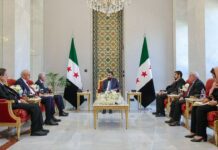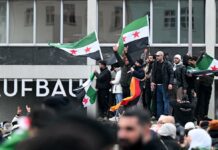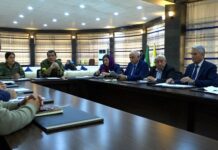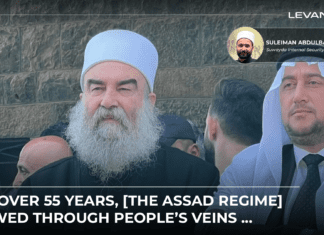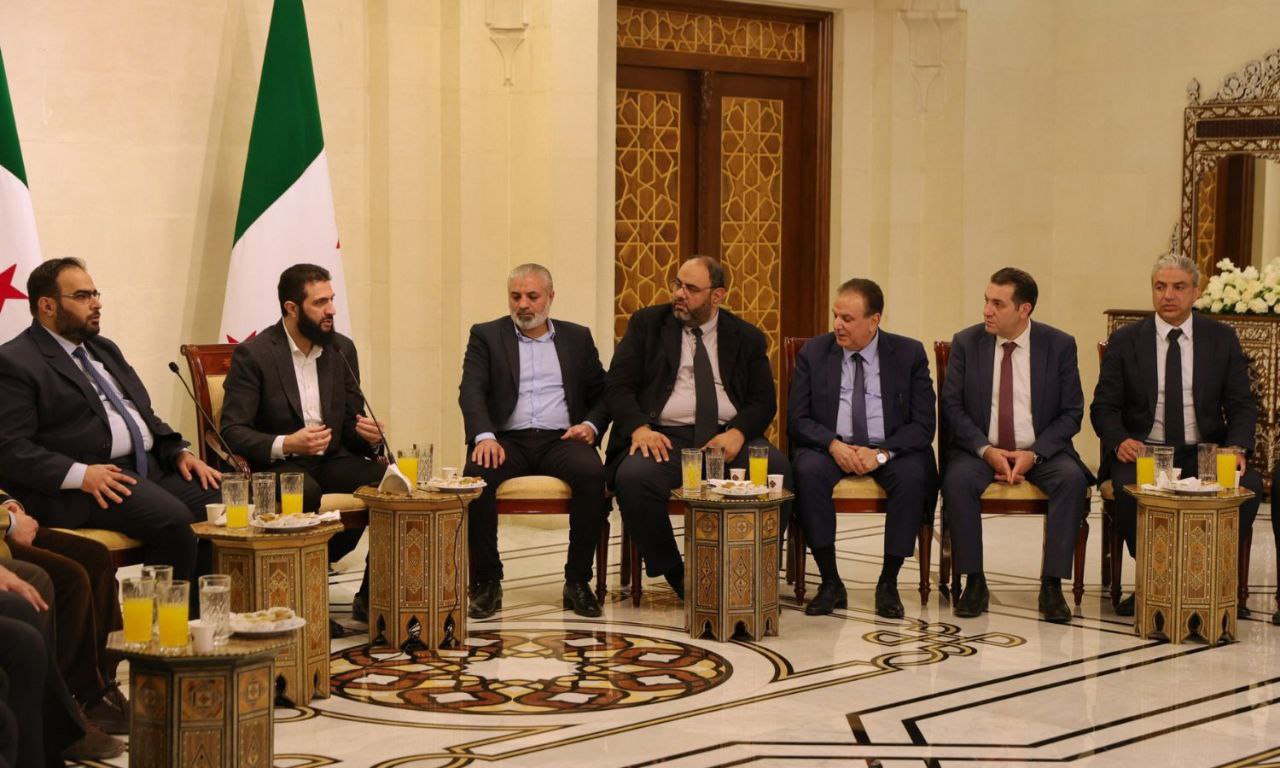
The Syrian presidency has announced the formation of a preparatory committee for the upcoming National Dialogue Conference, marking a significant step in the country’s political transition. The committee will oversee consultations with various Syrian factions ahead of the conference, which is expected to lay the groundwork for a constitutional declaration shaping Syria’s future.
“Special sources” told Syria TV that the preparatory committee includes seven members: researcher Hassan Al-Daghim, writer Maher Alloush, Dr. Muhammad Mustat, Youssef Al-Hajr, politician Hind Qabwat, architect Huda Al-Atassi and Mustafa Musa, a member of the Civil Council of Notables in Idlib. The names are set to be officially announced later today, Wednesday.
National Dialogue & Constitutional Path
President Ahmad al-Sharaa emphasized that the conference’s final statement would serve as the foundation for a constitutional declaration. He clarified that the document’s formulation would not be a unilateral decision but rather the product of extensive consultations reflecting the will of the Syrian people.
“The process of defining Syria’s future must be based on broad consultations that allow for diverse perspectives,” Al-Sharaa said. “These discussions will guide the preparatory committee in crafting recommendations that shape the constitutional declaration.”
He also stressed the importance of conducting thorough consultations before formalizing the declaration, as it would address critical issues such as national identity and governance structures. Al-Sharaa indicated that the transition period leading to elections could take up to five years due to necessary reforms in state infrastructure.
“There are many technical tools the state requires to ensure transparent and credible elections. Without accurate and clear data, any election process will be questioned,” he said.
Dissolution of Opposition Institutions
The formation of the committee follows a pivotal meeting between Al-Sharaa and representatives from the Syrian Negotiations Committee and the Syrian National Coalition at the People’s Palace in Damascus. During the meeting, the opposition institutions handed over files documenting their work in preparation for their formal dissolution.
A statement from the Presidency of the Republic confirmed that Al-Sharaa met with Badr Jamous, head of the Negotiations Committee, and Hadi al-Bahra, head of the Syrian National Coalition, along with their delegations. The representatives congratulated the president on assuming office and underscored the importance of national unity.
“In line with the declaration of the victory of the Syrian revolution, which includes the dissolution of all institutions that emerged under the revolution and their integration into state institutions, the two delegations handed over the mandate, which includes all files related to the Negotiating Committee, the National Coalition, and the institutions emanating from them to the Syrian state,” the statement read.
Al-Sharaa commended the role of opposition figures in exposing the actions of the previous regime on the international stage and supporting the Syrian people’s struggle over the past 14 years. He acknowledged their contributions to the political process and reaffirmed the state’s commitment to integrating skilled personnel from the dissolved institutions into state structures.
Transition & Military Integration
The dissolution of revolutionary and opposition bodies is part of a broader effort to consolidate governance under the new administration. The Syrian presidency has outlined plans to integrate all armed factions into a unified national military, restricting weapons to state control.
The delegation from the opposition institutions expressed its commitment to working with the new leadership to rebuild state institutions, restore security and stability, and implement a transitional roadmap. The proposed framework includes forming a comprehensive government that represents all Syrians, drafting a new constitution, and organizing free and fair elections.
Syrian Turkmen Council & Kurdish Political Realignments
Amid these shifts, the Syrian Turkmen Council (STC) has announced its withdrawal from the National Coalition for Syrian Revolutionary and Opposition Forces. The council’s decision followed a consultative meeting on Feb. 8, where members discussed the future of national political engagement.
In a statement, the council emphasized the need for a restructured national framework that aligns with the aspirations of Syrians, particularly the Turkmen community, to establish a unified and democratic state. It reiterated its commitment to cooperating with Syrian national forces and supporting a governance model based on pluralism and constitutional rights.
Meanwhile, the Kurdish political landscape continues to evolve. The National Unity Parties (PYNK), which operate within the Autonomous Administration in North Eastern Syria (AANES), have invited the Kurdish National Council (KNC) to a national conference aimed at unifying Kurdish political representation. However, the council has not responded to the invitation, underscoring ongoing divisions within Syria’s Kurdish community.
As Syria enters this new phase, the National Dialogue Conference is expected to play a decisive role in shaping the country’s future governance. The preparatory committee’s consultations and the eventual constitutional declaration will determine the legal and institutional framework guiding Syria’s transition in the coming years.

